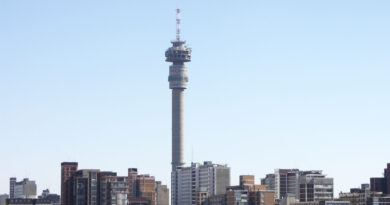In blow to Sentech, SABC eyes satellite for digital migration
In a potentially serious blow to state-owned broadcasting signal distributor Sentech, the SABC has said it wants to make much more extensive use of direct-to-home satellite technology rather than terrestrial signal distribution networks as it gears up for the era of digital broadcasting.
Sentech has invested billions of rand rolling out digital terrestrial television (DTT) infrastructure across in South Africa in preparation for the roll-out of digital broadcasting. The SABC is by far Sentech’s biggest client.
In the 2019 financial year, Sentech reported a net profit of R182.7-million on revenue of R1.4-billion. In the same period, the SABC paid Sentech R829.4-million, up from R781.4-million in the 2018 financial year.
In a prepared speech delivered at Media Monitoring Africa’s Freedom Week in Johannesburg this week, SABC CEO Madoda Mxakwe said the broadcaster’s board has a “fiduciary duty to make decisions that will be in the long-term interest of the public broadcaster and it is mission critical that the we are able to independently decide on which platforms will be in the SABC and our audiences’ best interests”.
“In this light, we believe that satellite has significant advantages over the current DTT network and, therefore, the SABC’s turnaround plan envisages a far greater deployment via satellite,” Mxakwe said.
He said a trend has emerged in some markets internationally to move away from DTT for broadcasting in favour of online streaming and satellite delivery. It’s clear Mxakwe is keen for the SABC to have the power to decide which platforms to utilise and not have this dictated to the company.
Politically difficult
However, any conversations are likely to be politically difficult, with the department of communications & digital technologies having both the SABC and Sentech in its portfolio of state-owned enterprises. A move by the SABC to lessen its reliance on Sentech could assist the former in digging its way out of its financial problems. But it will hurt Sentech, which has invested significantly in the national DTT network.
The SABC has begun having the conversations with the relevant authorities about its desire to make more extensive use of satellite technology into homes, Mxakwe said. TechCentral understands that the broadcaster would like to procure satellite transponder capacity in the open market.
 However, South Africa’s policy and DTT regulations limit its ability to migrate more fully to satellite, Mxakwe said. “The SABC has taken this issue up with both government and the regulator as a pressing matter.”
However, South Africa’s policy and DTT regulations limit its ability to migrate more fully to satellite, Mxakwe said. “The SABC has taken this issue up with both government and the regulator as a pressing matter.”
He said it is both a “challenging” and “exciting” time to be in the public media and entertainment space in South Africa.
It’s challenging because “we are faced with very well-resourced global and local competitors who have a major head-start on the SABC through technology and content acquisitions”.
“But it is also an exciting and historic moment as we have the opportunity to fundamentally address these shortfalls and position the public broadcaster to be sustainable for years to come.
“After many years of delays, we now have the opportunity to fast-track our migration to digital platforms and leapfrog many stages by leveraging our significant reach and existing content base.”
Mxakwe said independent television providers — and, in particular, smaller and emerging players, have been “badly hit” by the financial and liquidity crisis at the SABC and the delay in digital migration — and the consequent delay in the launch of new television channels and streaming platforms.
“The SABC is determined to play a more central and ethical leadership role in making sure digital migration happens and full analogue switch-off can take place sooner rather than later,” he said.
“The faster the SABC can migrate off the analogue spectrum, the better it will be for content creators and producers. More channels mean more content. Simple as that.” — © 2019 NewsCentral Media
Source: techcentral.co.za



